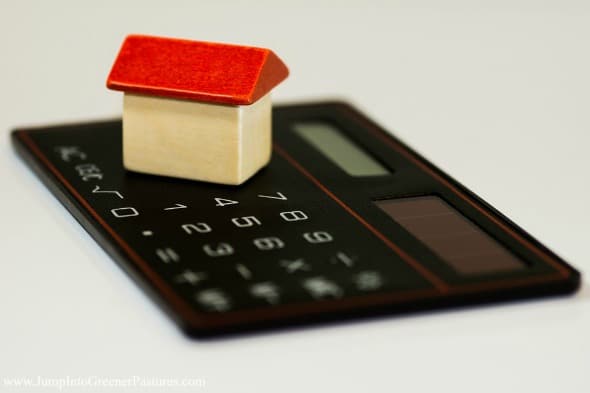Purchasing a home in Charlottesville, VA is not an easy task. Since home buying involves a huge sum of money, you need to follow certain guidelines and ensure that you make the right decision before you dive in.
When buying a home, it doesn’t really matter whether you are an experienced real estate investor or a first-time homebuyer. Regardless of how many times you have invested in real estate, you need to put a lot of thought into this decision so you can safeguard your finances and avoid future regrets.
Here are some guidelines that you can follow if you are buying a home in Charlottesville:
Know the Type of Home You Can Afford
Since buying a home is a long-term commitment, you need to determine how much you can pay every month. Having to spend years paying your monthly home mortgage is not a joke, so it is imperative that you only get a home that you can afford. As you calculate, include the costs for regular maintenance, insurance and other upgrades that your home may need in the future.

Buying a home is one of the most crucial decisions that you will ever make. Not only does this provide a solid foundation for yourself, it also plays a huge role in your financial health.
When you buy a home, you help yourself build your net worth and achieve a level of financial freedom. However if you buy a home that is larger than you can afford, it could eventually become a major burden to you.
Here are some key signs that the house you are planning to buy is something you cannot afford:
It is outside your budget
While this may seem pretty obvious, in reality, you will be stunned at how many homebuyers tend to set a budget and end up going beyond it. There is a reason a budget exists. Going beyond it means you are stretching yourself past where you previously felt financially comfortable, so don’t take the risk of wanting something more than you can actually afford.
Determine your budget by calculating your current income and expenses on a monthly basis. To be safe, add in some cushion in case your expenses rise, but never assume that your income will go up. You also need to factor in how much you want to actually save and invest each month.
You make assumptions about your future income and expenses
Don’t be the kind of person who says, “I’m getting a larger and more expensive house because I will probably make more money in the future.” This thinking is disastrous because there’s a chance you or your spouse may never really get the raise you’re counting on. You may event lose your job entirely!
It is highly unlikely to predict your future income and expenses with real accuracy, so when you budget for a home, take a conservative approach based on your current income. Also, always assume that your expenses will go up if you plan to expand your family. Taking this approach will give you wiggle room to save money and invest in a home.
You are unable to place 20 percent down
Putting a sizable down payment on your dream home presents many key advantages. Aside from doing so will have you borrow less, you also get to start off with a larger piece of equity in your home. It also means lower interest payments overall.

If you’re not able to save 20 percent for your down payment, then most likely, it will be hard for you to pay for your home in the long run. Rather than jumping into buying, try saving more for a larger down payment.
You have high interest rate
If your bank thinks you are a risky borrower, they are likely to impose high interest rates on you. If you have high debt, a low credit score, or both, you may end up with a higher-than-average interest rate, so your monthly mortgage payment will be higher.
Take a step back and examine why your interest rate is high, because that may be an indication that your finances are not in good shape. It may also mean you are trying to buy a house that is costlier than you can afford.
Your decision is emotion-driven
Say you chance upon a home that is the perfect embodiment of your dream home, but it’s expensive. It is expensive, but it is your dream home.
If you let your emotions to guide your decision, your dream home could end up being your worst nightmare. Remember that buying a home is more of a financial decision than an emotional decision. When you start having trouble making monthly payments after purchasing your expensive dream home, you might not appreciate all its beauty anymore.
You have weird mortgage terms
There are a lot of mortgage products out there, the most common of which is the one in which you place a certain amount of money down and obtain a loan with a fixed interest rate, then pay it back over an agreed period.
There are instances when you may not qualify for a fixed-rate mortgage. When such happens, banks will offer you different loan types. Don’t be lured to purchase a home that you ultimately cannot afford. If you are buying a home with a nontraditional mortgage—or if you do not understand the mortgage terms to begin with—you might take on more house than you can handle.
Your payments are more than 30 percent of your monthly income
Particularly in the U.S., renters and homeowners are advised to pay no more than 30 percent of their income in housing costs. While this is not a requirement or law, it is a helpful guide for determining if you may be overburdened by a mortgage.
If you have an average income, 30 percent is a safe target to stay under. If you have a high income, you may afford to spend more than that.
Obtain Financing
After figuring out how much you can afford to pay every month for your home, the next thing to do is find a lender and obtain financing. You can present to your lenders your credit score, recent tax returns and W-2 forms to verify your finances.

Find a Reliable Real Estate Agent
The best way to go through the process of home buying is getting an experienced real estate agent to help you every step of the way. Especially if you are a first-time homebuyer and don’t know much about real estate investments, an agent can help you determine which communities have homes that suit your needs and can provide you with everything that you need to know about the homebuying process.
Whether this is your first real estate transaction or you are a veteran in real estate, having the right real estate agent is key to a smooth process. With millions of agents in the U.S. alone, however, how do you find the right agent for you?
The easiest way is by asking your friends and family for referrals in your area. Take into consideration their experiences and see if their names come up online. You can also check out reviews about those agents and go over these absolutely essential questions as you make your choice:
How long has she been in the business?
This question may sound basic, but it is crucial. While experience does not necessarily equal success, remember that real estate is a commission-based business and it would be difficult for any agent to survive the industry for a long time if she provides awful service. If an agent has been in the real estate business for many years, then most likely, she has already seen many different situations to be rattled should she encounter difficult clients down the road.
Does she have time for me?
Asking an agent about her average number of clients will also help you determine if she will have time for you should you hire her as your agent. As a potential client, you wouldn’t want to feel as if you’re thrown to the wayside while your agent is busy working with a dozen others.
If your agent is working with a high volume of clients, find out how she plans to remedy the situation should you hire her. If she has other team members who can help you, then that’s better.
Which specific areas does she cover?
As you look for an agent, you will likely encounter ones who are neighborhood experts and others who travel halfway across the country to find clients. If you want the best agent, find someone in the middle. Just because an agent covers an entire state doesn’t mean she has an intimate knowledge of all its local markets.
Is she part of a team?
While working with a team can have many benefits, you must clarify from the get-go the relationship you will have with the other members of the team. There will always be one who has more intimate knowledge of specific situations than another, so it’s better if you know if there’s a specific agent to work with you throughout the transaction or if you are going to meet with different people at different times.
Is she equipped to handle my unique situation?
Whether you are a long-time investor, a house flipper, first-time homebuyer, or seller, you will always encounter unique scenarios where you will need the assistance of an experienced real estate agent. Don’t just settle for someone who answers your question with, “Don’t worry, I’ve dealt with this before.” Instead, as the agent how specifically you are going to resolve and handle unique situations.

What type of communication do I expect from her?
At this point, you may have already noticed if you and your potential agent understand how each other communications. This is where you should set expectations for how often she needs to update you, the best communication methods to use, and how she’s going to keep you in the loop. Your agent’s priority must be what makes you feel most comfortable as her client.
Does she have a recommended vendors list?
You will know how experienced an agent is if she has a recommended vendors list. If she’s been in the business for a long time, she will have already developed trusted relationships with other industry professionals, from lenders and title companies to contractors and inspectors. She must be able to refer you to different sources who can assist you with your different needs during the process.
Search for Charlottesville Homes for Sale
If you want to find a home in Charlottesville golf communities, you can search all the available homes in the area and look for the one that meets your lifestyle and budget. Once you have found the home of your choice and have already decided to buy it, make an offer right away. Within 10 days after your offer gets accepted, order a home inspection.
Have an Appraiser Visit the Property
You can never underestimate the role of an appraiser in the home buying process. Appraising the property is a crucial part of the financing process because it is where the appraiser determines the fair market value of the property.
Have a Final Walk-Through of the Home
Before closing the deal with the seller, take a final visit to the property and make sure that it’s still in the same condition as when you made the offer to buy it. Have your real estate agent accompany you on this final walk-through so he can answer your queries.

Close the Deal
As you close the deal, the other party will present all the closing documents for your review and signature. Make sure that you understand everything that’s written on these documents before signing. If you have questions, feel free to ask so you know all the details before moving into your new home.
While it is true that home buying is a truckload of work, you don’t necessarily have to stress yourself with everything. If you get the right real estate agent, you will be able to save time and money as you go through the process.
Contact me today at 434-960-0161 and let’s talk! I am Pam Dent, Charlottesville’s top Realtor®. Let me make this whole thing as easy as possible for you.
In case you can not view this video here, please click the link below to view Guidelines for Buying a Home in Charlottesville VA on my YouTube channel: https://www.youtube.com/watch?v=1QyxrtYRWEY&feature=youtu.be




 Pam Dent
Pam Dent